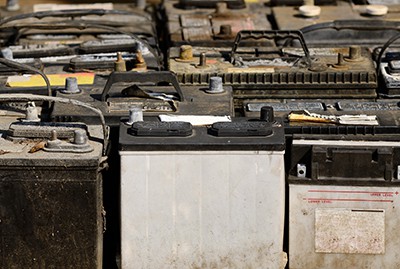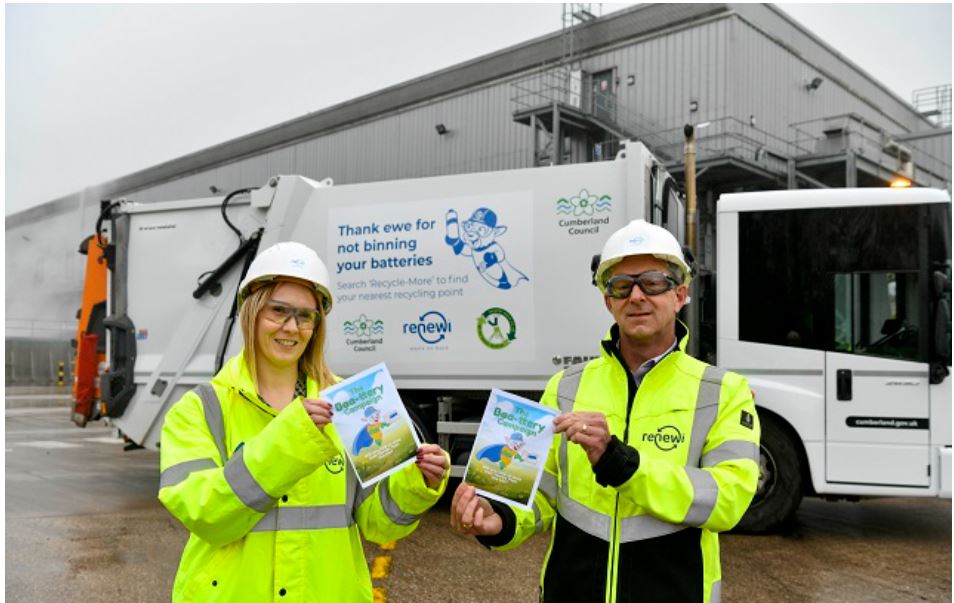A decision on the reclassification of the material comes after a drawn out consultation process into the guidance on battery recycling, which has lasted close to two years.

A spokesman for the Department for Environment, Food and Rural Affairs (Defra) this week confirmed that a 4kg threshold is likely apply from January 2016. The threshold will apply to any battery intended for non-industrial uses weighing under 4kg.
The change in guidance removes a ‘grey area’ for battery recyclers, which had seen batteries weighing up to 10kg classed as portable.
An announcement on the change via a post on the National Packaging Waste Database, stated: “A portable battery must be capable of being hand-carried by the average person without difficulty. Currently a battery weighing less than 4kg will be classed as portable and a battery over 10kg will be classed as industrial. For batteries between these weights, the battery could be portable or industrial depending on the characteristics of the specific battery.
“This 4-10kg ‘grey area’ will be removed. Instead, any battery weighting [sic] 4kg or below will be portable, and any battery over 4kg will be industrial.
“This change only applies to the interpretation of hand-carriability. A battery under 4kg may still be industrial if it is designed exclusively for industrial use.”
The spokesman for the Department added: “This revised guidance will incentivise investment in new recycling facilities and help the UK meet its recycling targets.”
Target
Portable batteries are the only category to which a recycling target has been attached – and battery recyclers have long argued that as they are often unaware of the original use of some lead acid batteries, it is impossible to determine if they fall into the industrial or portable classification.
Therefore, it has been suggested that incorrect classification of lead acid batteries could be skewing data on the number of portable batteries collected for recycling.
According to Defra, 83% of the UK’s battery recycling obligation in 2012 was met through the collection of lead acid batteries, despite them making up just 8% of the new batteries placed onto the market.
[testimonial id = “266” align=”right”]
With the change coming into effect it is expected that greater effort will need to be made to increase the capture of lighter portable batteries – including those typically discarded by householders – in order to meet the targets.
Defra predicts that the increase in collection and processing costs to meet the 45% battery recycling target could cost around £7.8 million over 10 years.
Recycling
News of the change in classification has been welcomed by the recycling community, with some claiming that reliance on lead acid batteries to meet recycling targets had made it more difficult to encourage increased recycling in other battery types.
Justin Greenaway commercial manager at SWEEEP Kuusakoski, said: “Part of the problem is that there are a lot of batteries at AATFs that it is difficult to get collected as the targets have been met through the lead acid protocol.
“I hope now that people will have to take away more batteries or see that there is a lot of them available that can be recycled.”
Greg Clementson, managing director of G & P Batteries added: “It’s welcome news that a decision has finally been made, but the timing for it to be implemented will be crucial. From a recycling perspective we at G & P hope this will go some way towards reducing the huge disparity between the number of lead acid batteries being placed on and appearing to be taken off the market. This has lead to an over-dependence on lead acid batteries by the UK in meeting its portable battery recycling targets. With the definition of a portable battery now clear, we hope to see more efforts being made to recycle a wider range of battery chemistries which will bring the UK into line with the recycling activities in other European countries.”
Compliance scheme
David Burton, policy director at battery compliance scheme ecosurety has also welcomed the announcement. He said: “The removal of the grey-area helps to reduce uncertainty in classifying batteries. It will ensure that batteries recycled represent a fairer reflection of those sold here in the UK. We believe it is good news as it will encourage collection activities that are vital to increasing the recycling rate of the average battery that ends its life in the household. Having established over 7,000 collection points, we’re keen to encourage greater public engagement to ensure that less batteries end up in landfill.”
Changes to the guidance have been a long time coming for the batteries sector – with a consultation on the changes originally launched in 2013. This was then scrapped after an error in the consultation documents was discovered, and a fresh consultation was not carried out until January 2015 (see letsrecycle.com story).










Subscribe for free